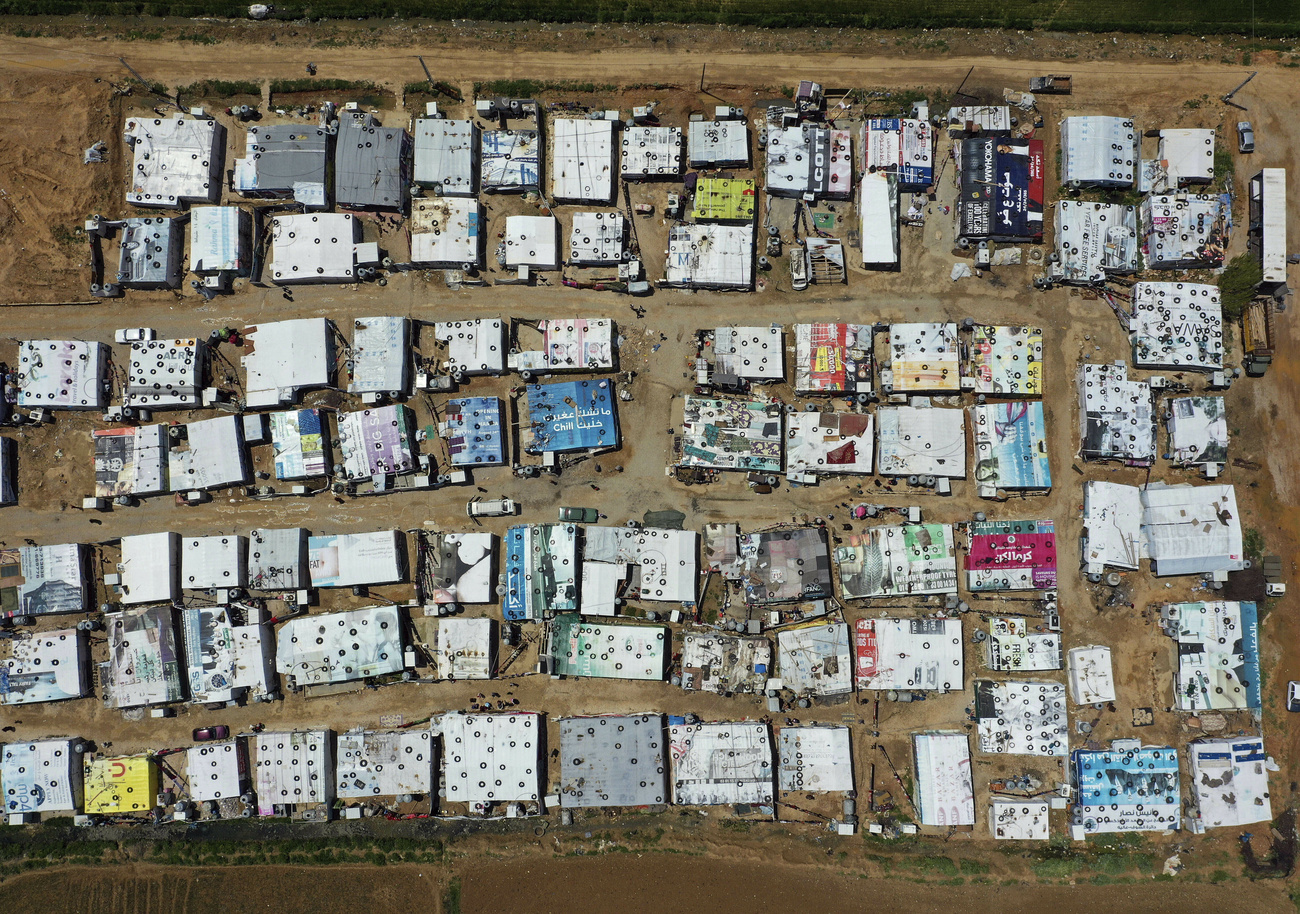
Switzerland increases winter aid for war-torn Ukraine

Switzerland is again supporting the suffering population in Ukraine this winter and is increasing its contribution by CHF11.8 million ($13.7 million). The hardship in Ukraine is a consequence of the military invasion ordered by Russian President Vladimir Putin.
In total, the Swiss government is spending around CHF26 million on winter aid measures, the foreign ministry announced on Wednesday.
According to the statement, the government is supporting several non-governmental organisations in providing life-saving protection as part of winter aid. For example, it has enabled repairs to almost 1,000 flats and houses and the distribution of heating material to around 1,300 households in frontline areas.
In addition, experts from the Swiss Humanitarian Aid Unit have helped to repair water supply pipes and pumping stations over the past few months in order to ensure district heating and clean drinking water.
+ Switzerland to host Ukraine peace talks in January
Putin gave the order to launch a military invasion of Ukraine on February 24 last year. Since then, numerous Russian war crimes against the Ukrainian civilian population have come to light. Thousands of children have been abducted, and just a few days ago the UN documented the torture of civilians in Russian captivity.
The material damage to buildings and infrastructure throughout the country alone is estimated at hundreds of billions of francs.
In an essay in the summer of 2021, Putin denied the southern neighbour Ukraine the right to exist as a state and emphasised that Ukrainians and Russians are one people. The Kremlin in Moscow also accuses the Ukrainian leadership of opening the door for the Western military alliance NATO to threaten Russia with an imminent further expansion eastwards.
This news story has been written and carefully fact-checked by an external editorial team. At SWI swissinfo.ch we select the most relevant news for an international audience and use automatic translation tools such as DeepL to translate it into English. Providing you with automatically translated news gives us the time to write more in-depth articles. You can find them here.
If you want to know more about how we work, have a look here, and if you have feedback on this news story please write to english@swissinfo.ch.

In compliance with the JTI standards
More: SWI swissinfo.ch certified by the Journalism Trust Initiative































You can find an overview of ongoing debates with our journalists here . Please join us!
If you want to start a conversation about a topic raised in this article or want to report factual errors, email us at english@swissinfo.ch.